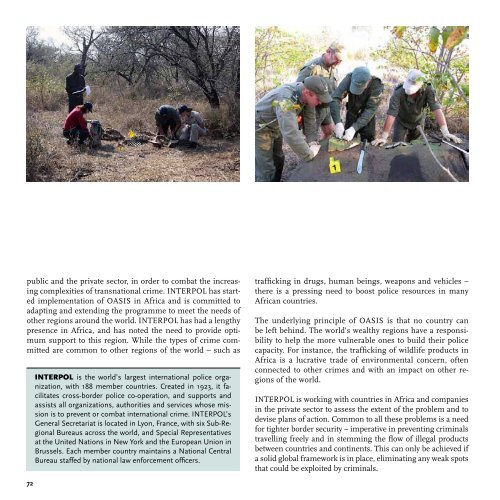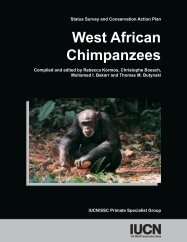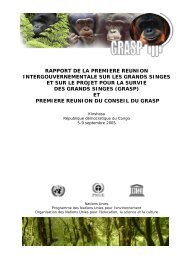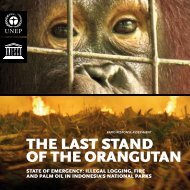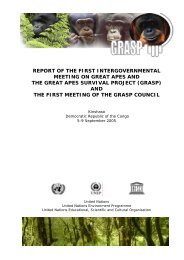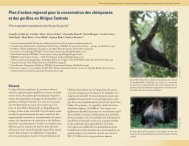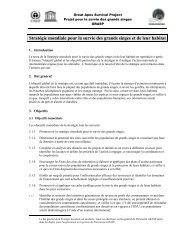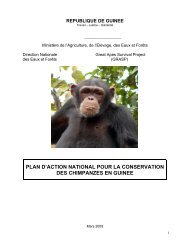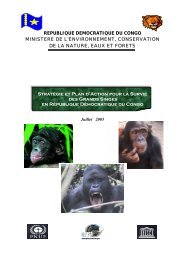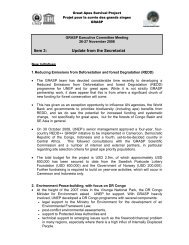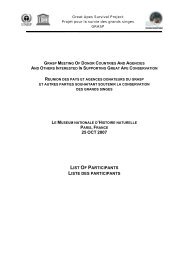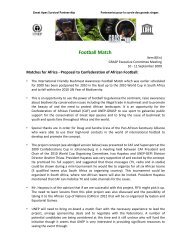THE LAST STAND OF THE - GRASP
THE LAST STAND OF THE - GRASP
THE LAST STAND OF THE - GRASP
You also want an ePaper? Increase the reach of your titles
YUMPU automatically turns print PDFs into web optimized ePapers that Google loves.
public and the private sector, in order to combat the increasing<br />
complexities of transnational crime. INTERPOL has started<br />
implementation of OASIS in Africa and is committed to<br />
adapting and extending the programme to meet the needs of<br />
other regions around the world. INTERPOL has had a lengthy<br />
presence in Africa, and has noted the need to provide optimum<br />
support to this region. While the types of crime committed<br />
are common to other regions of the world – such as<br />
INTERPOL is the world’s largest international police organization,<br />
with 188 member countries. Created in 1923, it facilitates<br />
cross-border police co-operation, and supports and<br />
assists all organizations, authorities and services whose mission<br />
is to prevent or combat international crime. INTERPOL’s<br />
General Secretariat is located in Lyon, France, with six Sub-Regional<br />
Bureaus across the world, and Special Representatives<br />
at the United Nations in New York and the European Union in<br />
Brussels. Each member country maintains a National Central<br />
Bureau staffed by national law enforcement officers.<br />
trafficking in drugs, human beings, weapons and vehicles –<br />
there is a pressing need to boost police resources in many<br />
African countries.<br />
The underlying principle of OASIS is that no country can<br />
be left behind. The world’s wealthy regions have a responsibility<br />
to help the more vulnerable ones to build their police<br />
capacity. For instance, the trafficking of wildlife products in<br />
Africa is a lucrative trade of environmental concern, often<br />
connected to other crimes and with an impact on other regions<br />
of the world.<br />
INTERPOL is working with countries in Africa and companies<br />
in the private sector to assess the extent of the problem and to<br />
devise plans of action. Common to all these problems is a need<br />
for tighter border security – imperative in preventing criminals<br />
travelling freely and in stemming the flow of illegal products<br />
between countries and continents. This can only be achieved if<br />
a solid global framework is in place, eliminating any weak spots<br />
that could be exploited by criminals.<br />
72


